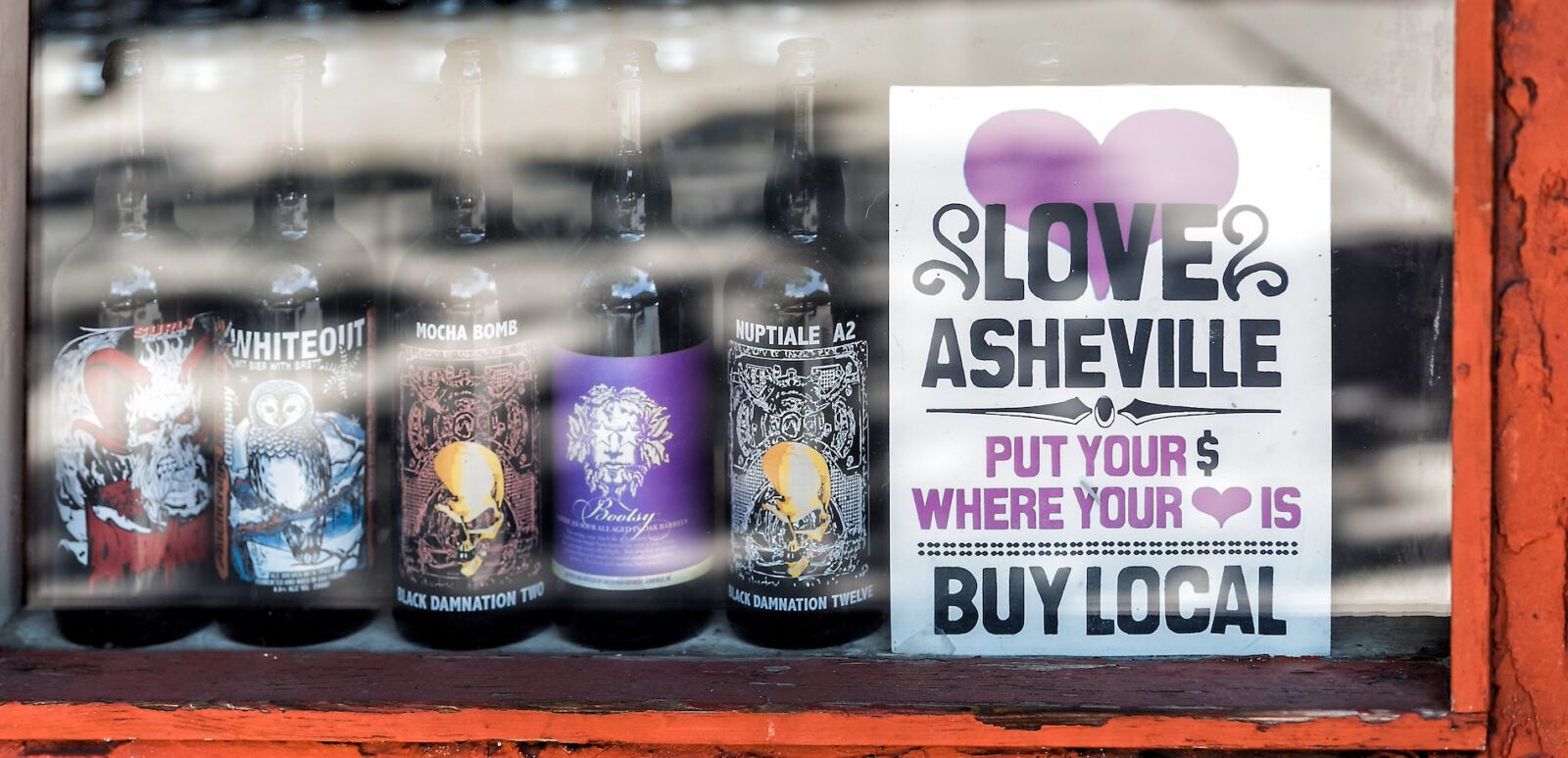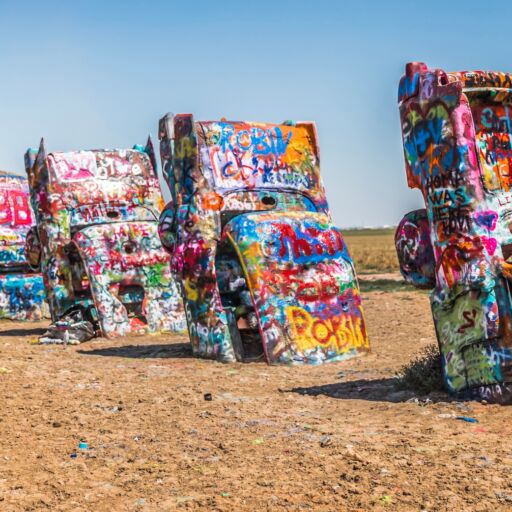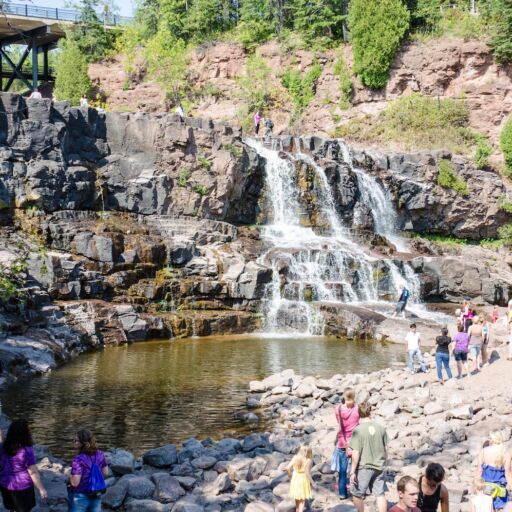I am perusing the coolers at The Mule looking for some liquid souvenirs from Asheville. The cans inside look like any you’d find at an Asheville craft brewery, colorful and creative and filled with funny names. Except, instead of the usual lineup of IPAs and Hefeweizens, the shelves are lined with cans of raspberry lemonade soda, virgin Dark and Stormys and sparkling apple ciders.
They’re creations of Devil’s Foot Beverage Company, which produces its line of craft sodas inside The Mule’s echoing warehouse. The space has all the hallmarks of a craft brewery with a taproom and pallets of cans, but none of the cans contain alcohol. They’re a sign of the sober-curious times, certainly, but also a sign that Asheville understands better than anyone that the world of craft breweries is expanding beyond just drinking beer.
“A lot of our breweries are working on diversification,” says Karis Roberts, the Executive Director of the Asheville Brewers Alliance, as we sample a craft soda flight at The Mule’s bar. The sparkling strawberry lemonade makes for a refreshing lift in the early afternoon, and the root beer has flavors equally as complex as most alcoholic craft brews. “So breweries … are making natural wine and hop water. You’ll see a lot more have a distillery permit, so they’re having not just beer but drafts or cocktails.”
Where once Asheville defined itself as a beer-drinking tour de force, where a day of brewery hopping meant stretching your stomach and your tolerance, today there’s more to it than beer. Breweries have added everything from music venues to volleyball courts and science lessons, with craft cocktails and non-alcoholic options spreading Asheville’s appeal to beer drinkers and non-beer-drinkers alike.
Neighborhood by neighborhood and brewery by brewery, you can see the city adapting. At Sweeten Creek, the two-mile-ish stretch where Roberts and I sit, there are eight breweries, including The Mule and Asheville’s original craft brewery, Highland Brewing, that’s evolving as much as any in the city.
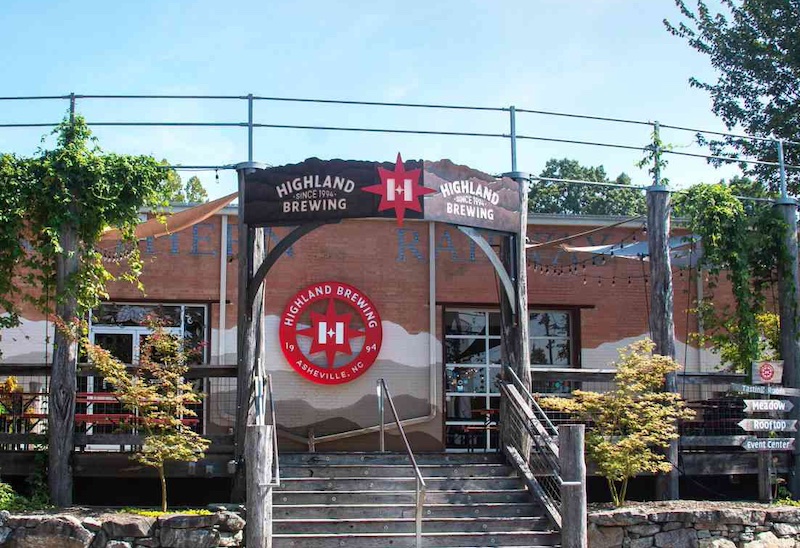
Started 30 years ago by Oscar Wong as a post-retirement activity, Highland has become an Asheville icon; their Cold Mountain winter ale release is a major annual celebration. It refers to its space as a “campus.” Spread over acres of Carolina hilltop, you’ll find everything from a full disc golf course to volleyball courts and event spaces.
“The creativity that you’ve got in Asheville helps us continue to innovate, to stay relevant in a way that’s true to our brand,” says Highland’s VP of Brand Development Nikki Mitchell. “We’ve certainly put a lot into making our tap room more than just a tap room, a destination for people to come and enjoy the property and the community that we feel very strongly connected to.”
Barbecue and science lessons in Woodfin
Along the banks of the French Broad River sits an unremarkable industrial area called Woodfin, where warehouses line the waterfront and a long road snakes through this town-within-a-town. Look a little closer and you’ll find a trio of breweries that have set up shop thanks in part to Woodfin’s business-friendly local authorities.
Along the main drag sits tiny Outsider Brewing, which according to owner Julian Arena, might be the smallest brewery in America. It certainly is the smallest in Asheville, and it’s probably the city’s most science-forward brewery, too. Outsider consists of a couple of tables, a bar with a handful of seats, and a clear borosilicate glass, one-barrel brewing system in the middle of it all. The patented system lays bare every step in the brewing process as it chemically unfolds, providing a scientific beer education in addition to beer drinking, and bringing a new meaning to “transparency in production.”
“Our dream is to make the future of brewing a little more intimate, and less about production,” Arena says. Outsider produces one beer at a time, brewing every other day, so no matter when you visit, you have a decent shot at watching the whole process while you enjoy a Secret Helles or Mildly English ale. Despite their exceedingly small batch sizes, the beers here aren’t any more expensive than your standard Asheville craft pours. Outsider’s low overhead costs help keep their prices down.
Woodfin’s other two breweries have leaned into their culinary side. Half a mile down the road sits Riverside Rhapsody, the odd brewery that might be better known for its food than its beer. Iron and Oak BBQ pops up in a tent on the brewery’s back lawn and on this Sunday afternoon, the family owners of the BBQ pop-up laugh when I ask if they’ve got any brisket left. Turns out, there is enough for one chopped brisket sandwich and it makes a satisfying base for an afternoon of drinking. After a small pour of Riverside Rhapsody’s Ginger Wheat — which is less about beer and more about recreating the feel of a North Carolina backyard cookout — I head across the street.
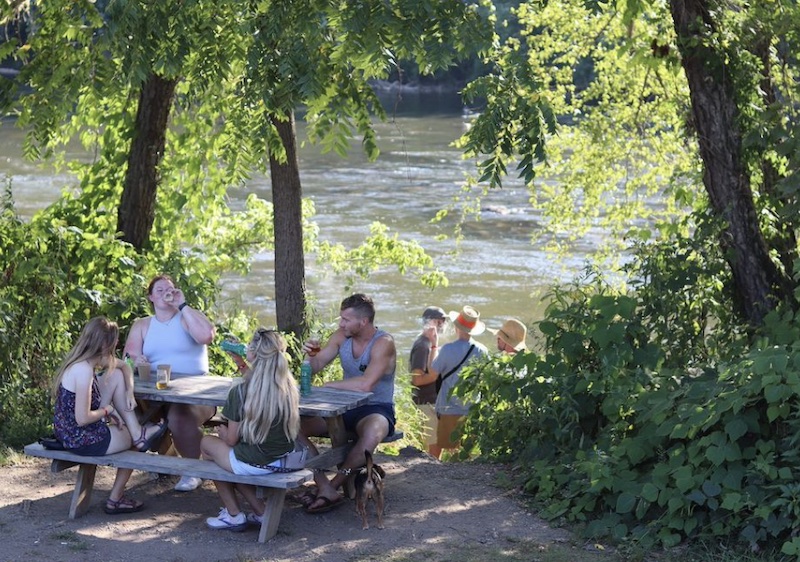
Zillacoah is the largest of Woodfin’s breweries. It’s the kind of place you picture when you hear the words “Drinking beer outside in Asheville,” where the sun drenches the property and then sets behind the mountains. It’s not just a place to drink outside — there are picnic tables and chairs set up along the river’s edge — but also a spot to try Filipino barbecue, as its onsite food truck dishes out lumpia, chicken inasal, grilled pork belly and other traditional foods.
Music, curry chicken pizza, and tiki bars in South Slope
Asheville’s quintessential beer district remains South Slope, the downtown adjacent neighborhood where one can walk to 10 breweries within only a few blocks. But even when bolstered by the abundance of tourists, South Slope’s breweries are still finding ways to push themselves.
Burial Beer Co. recently opened a live music venue called Eulogy. The morbidly themed beer hall is now frequently filled with the sounds of rehearsing drums or muffled concert noise in addition to the aromas of hops and toasted malt. Tickets to Eulogy aren’t included in your beer flight, but the juxtaposition makes for a perfect pre-and-post-show drink stop.
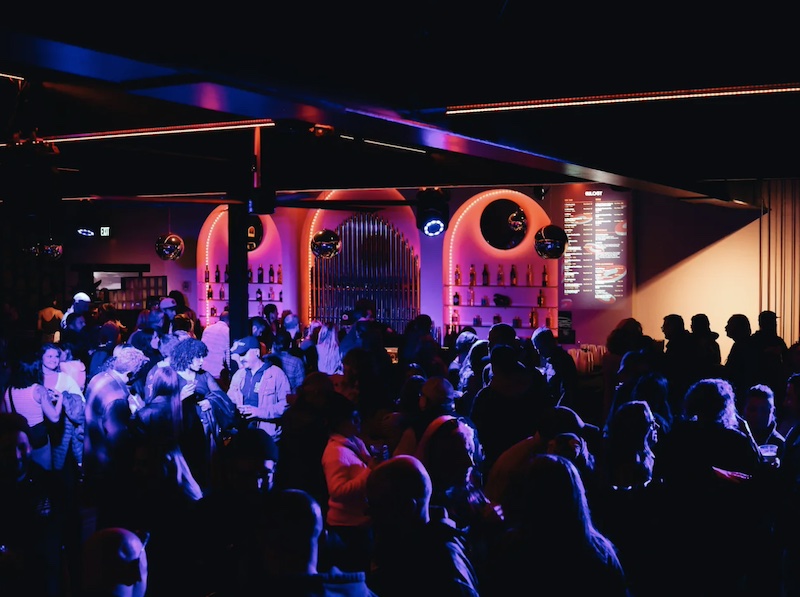
Asheville Brewing Company has done so well with its pizza menu that it’s now commonly referred to as “Asheville Pizza and Beer.” The colorful, tie-dyed brewery is coming up with creative takes on pizza like the Magic Dragon with pesto sauce and curry chicken that makes the taproom smell vaguely like an Indian restaurant. ABC has gained a reputation for its Ninja Spirits line too, taking full advantage of a 2019 law change that allows breweries to also hold separate distilling licenses. Scoping the bar’s patrons, at least half are sipping selections from the craft cocktail menu. And nearly all are eating pizza.
South Slope stalwart Hi-Wire recently opened a tiki bar in the back of its taproom, reachable only through an unmarked hallway on the way to the bathrooms. Walk through, and you’re taken to a midcentury Polynesian luau with dim light and rum-heavy drinks. It’s a tropical version of a speakeasy that gives visitors a reason to stop in besides another tour of uber-hopped IPAs, and it’s a common suggestion when asking locals what to check out downtown.
Appealing to non-drinkers in a city of excess
The advent of non-alcoholic options is perhaps the most intriguing advance in Asheville’s beer scene, as everyone from giant Sierra Nevada to tiny Outsider is serving up some kind of zero ABV option. But much like it did with alcoholic beer, Asheville is approaching the world of NA beer with the same creativity, understanding that beer without booze doesn’t have to taste like a crappier version of the real thing.
“In a city like Asheville, sometimes it’s exhausting to live in this excess all the time,” says Arena. “There’s not a culture of moderation — [zero ABV beverages] is like a reactionary thing. And people are getting really creative with it. We’re still learning. It’s like early craft beer, we don’t know exactly what to do. But there are some really, really good ones out there.”
At the end of my long day of beer and spirit perusing, I pop into downtown’s DSSOLVR, whose long menu of beers also includes a non-alcoholic mango sour. I decide this might be the opportune moment to see how Asheville does zero proof. The flavor is somewhere between a fruit juice soda and a light sour beer and is instantly the best non-alcoholic beer I’ve ever had. So good, in fact, I order two, a rare feat unless a football game has gone into overtime.




